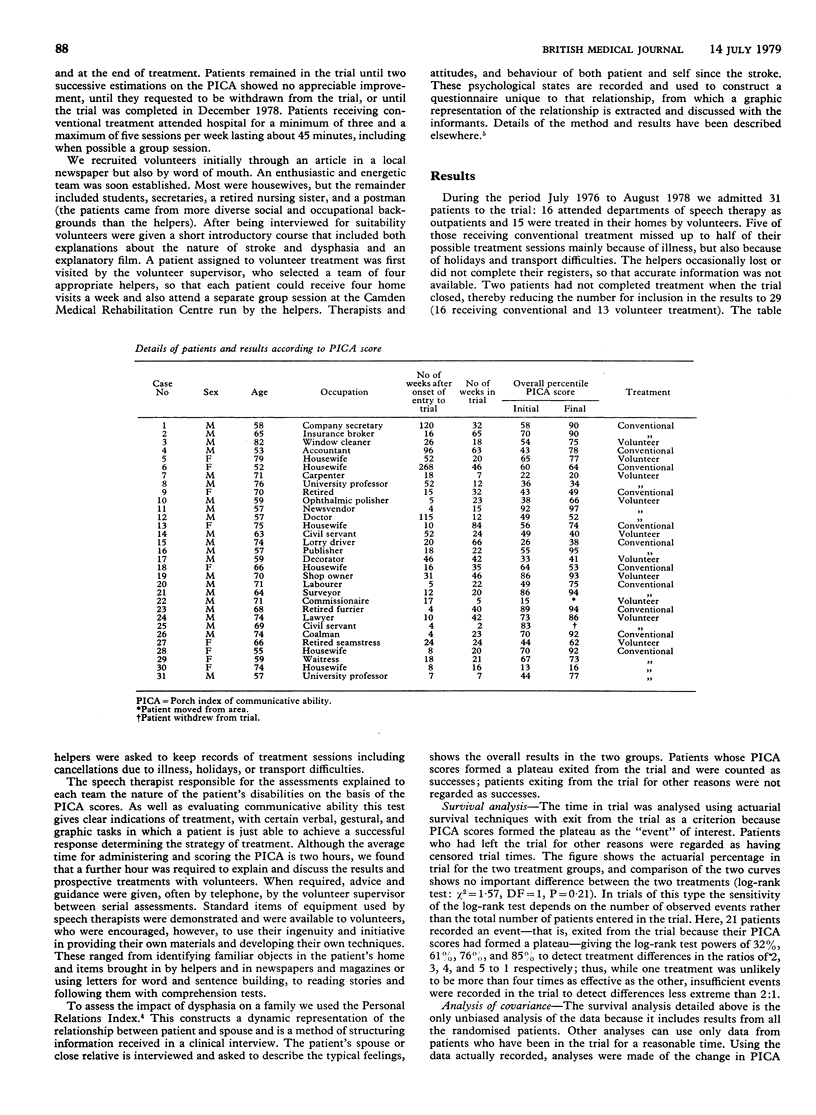Abstract
A study of the treatment of dysphasia after stroke compared the progress of two groups of disabled patients. One received conventional treatment from qualified speech therapists and the other from non-professional volunteers. Methods of assessing communication difficulties were also compared and the impact of aphasic illness on families examined. No important differences in the results of treatment were seen between the two groups. The volunteers, however, often had to assume some of the responsibilities of social workers, and transport to hospital created practical and economic problems. It is concluded that the two forms of treatment provide essentially the same benefit, although doubt must still remain because relatively few patients were studied.
Full text
PDF


Selected References
These references are in PubMed. This may not be the complete list of references from this article.
- Lesser R., Watt M. Untrained community help in the rehabilitation of stroke sufferers with language disorder. Br Med J. 1978 Oct 14;2(6144):1045–1048. doi: 10.1136/bmj.2.6144.1045. [DOI] [PMC free article] [PubMed] [Google Scholar]
- Mulhall D. J. Dysphasic stroke patients and the influence of their relatives. Br J Disord Commun. 1978 Oct;13(2):127–134. doi: 10.3109/13682827809011335. [DOI] [PubMed] [Google Scholar]


